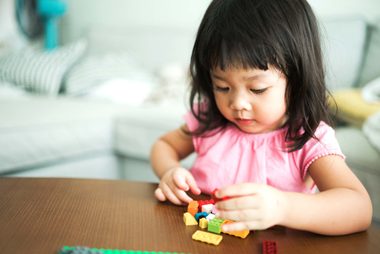
Don’t treat your home like a hospital
Hospitals have to guard against rampaging infections around a population—patients—who may have weakened immunity. (Here are some ways to keep your immune system healthy.) Achieving a hospital’s antiseptic smell at home shouldn’t be your goal, says Jack Gilbert, PhD, the co-author of Dirt Is Good. “A sterile home reduces the immune-stimulating microbial exposure that can strengthen your child’s immune system, so don’t bleach everything all the time.”
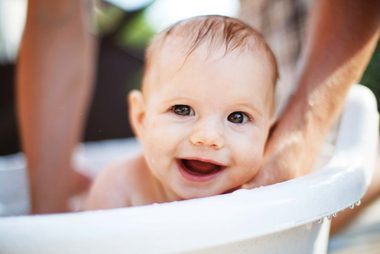
Your baby doesn’t need powerwashing
Did you know that scrubbing your infant too vigorously or with too much soap can lead to trouble? According to Dr. Gilbert, the poor thing could suffer skin damage. “Using water to clean up their private areas, and a damp cloth to wash their skin occasionally is much better,” he advises. (Here are some other ways you’re probably showering wrong.)
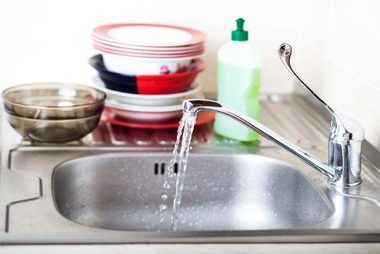
Wash your dishes by hand
Dr. Gilbert’s point is that a little germ exposure can be a good thing, and the sparkling clean dishes that come out of the dishwasher aren’t necessarily doing you any favors. “You actually leave more microbes on the dishes when you wash by hand, which can be beneficial,” says Dr. Gilbert, “Of course, be careful about food-borne pathogens, such as from raw chicken.” Here are some more secrets to staying healthy.
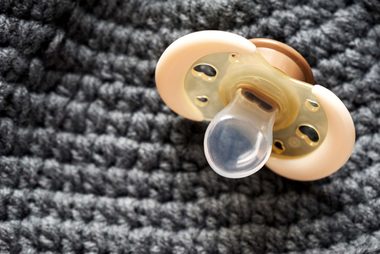
You don’t always have to sterilize that pacifier
For the ten-millionth time, your toddler drops a pacifier on the floor. Don’t panic if you don’t have a clean one handy and Junior is losing it. “Washing it in hot water can be just as effective, but on the whole more microbial stimulation correlates with stronger immune systems,” shares Dr. Gilbert. In other words, you could even lick it and pop it back into your baby’s mouth, Dr. Gilbert told NPR. In one study, the children of parents who did this had lower incidence of allergies, asthma, and eczema. If your baby does get sick, here are some remedies all parents should know.
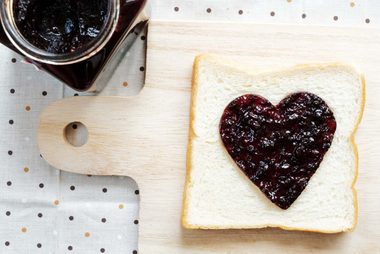
The five-second rule doesn’t really exist
And there’s nothing wrong with that, says Dr. Gilbert. “It takes milliseconds for microbes to attach themselves to a sticky piece of jammy toast,” he told NPR. But unless the food landed on something really foul, there’s little risk to a kid eating it anyway. “Sterilizing babies’ food does not seem to reduce infections in our modern world, but it may reduce their exposure, and hence weaken their immune system.”
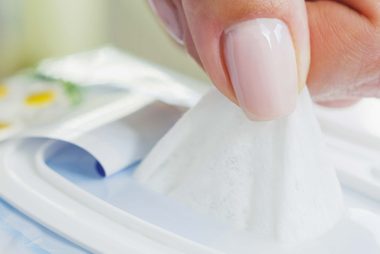
Put away the wet wipes
Don’t play border guard with the antiseptic wipes every time your kids come in from playing in the back yard, says Dr. Gilbert. A little dirt is good for them, and the only time they really need to wash their hands and face is when they’re really covered in grime. Even then, a little warm water and soap will do the job just fine, and could be less damaging to their long-term health. (Here’s why you don’t really need to use antibacterial soap or hand sanitizer to stay germ-free.)
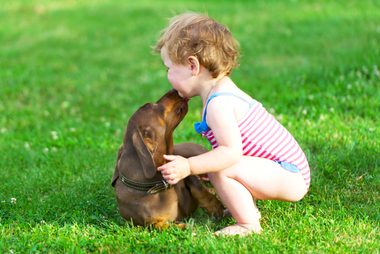
Don’t freak out if a dog licks your child
When a dog gives your kid a wet smooch, your first instinct may to be to hose him or her down. Hang on: “Physical interaction with dogs for a child under the age of 1 reduces their likelihood of developing asthma by 13 percent, which is quite a lot,” says Dr. Gilbert. What’s more, having a pet has plenty of other health benefits!

Try opening a window
Fresh air is good! “Turning off the air conditioning and opening your windows is potentially highly beneficially,” Dr. Gilbert advises, “It flushes out the human-associated microbes from the air and dust, and gets more soil, plant and animal microbes into your home, which is a good thing. Of course if you live in a high polluted area, or next to a highway it can be bad.”
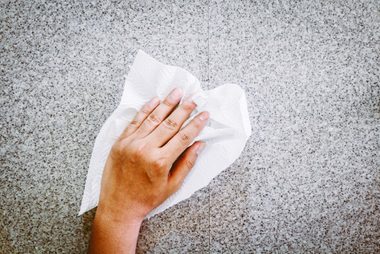
Rethink your cleaning habits
Think wiping your counter with Clorox wipes is getting them clean? Uh oh. “Usually people just wipe and then throw them away, and then dry the surface,” says Dr. Gilbert, “Actually, the bleach essentially needs to be in a liquid state and in contact with the surface for more than eight minutes to be effective. No one does this. So why bother at all? Wiping down with water is just as effective and washing your chicken-contaminated chopping board with hot water and dish soap is just as effective.” Here’s how you can clean your kitchen faster.
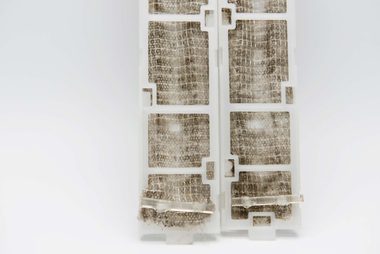
You don’t need the fanciest home air filter
Wanna save some money? “Unless someone in your home has life threatening allergies, then using a filter that removes everything is not necessary,” Dr. Gilbert shares, “Using the cheapest air filter to remove the large particles is just fine and actually makes your air conditioning system more efficient.” Here are some more innocent habits that may be ruining your own health.